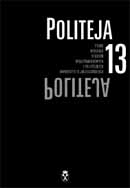Uprawnienia zastrzeżone Korony w ustroju westminsterskim
Reserved powers of the Crown in the Westminster system
Author(s): Tomasz WieciechSubject(s): Politics / Political Sciences
Published by: KSIĘGARNIA AKADEMICKA Sp. z o.o.
Summary/Abstract: By constitutional convention the Queen and her representatives, the governor-generals, can act only on the advice of their respective responsible ministers. Therefore all of the powers that are in their possession, whether their source is derived from prerogative or the constitution, are exercised not personally by them but through cabinet ministers. However, in certain extraordinary circumstances the Crown is constitutionally entitled to act on its own initiative, without or – better still – contrary to the advice that it receives. Those powers that can be exercised personally by the Queen are commonly referred to as reserve powers, sometimes also as personal prerogatives. The most important of them are the power to appoint and dismiss a prime minister and to dissolve parliament. Reserve powers also include the right to refuse royal sanction, the appointment of peers, judges or senators, as well as summoning and proroguing parliament. The scope of reserve powers differ according to local circumstances, i.e. the governor generals of Australia and Canada cannot refuse royal assent because of the judicial review procedure in these countries. They remain in reserve until the circumstances demand that they be used. When the Crown decides to act on its own initiative, its sole justification is the need to protect constitutional democracy. The author shows that the exercise of the reserve powers can serve this end very well by making – somehow ironically – the undemocratic Crown the last and the safest bulwark of democracy.
Journal: Politeja - Pismo Wydziału Studiów Międzynarodowych i Politycznych Uniwersytetu Jagiellońskiego
- Issue Year: 7/2010
- Issue No: 13
- Page Range: 489-509
- Page Count: 21
- Language: Polish

